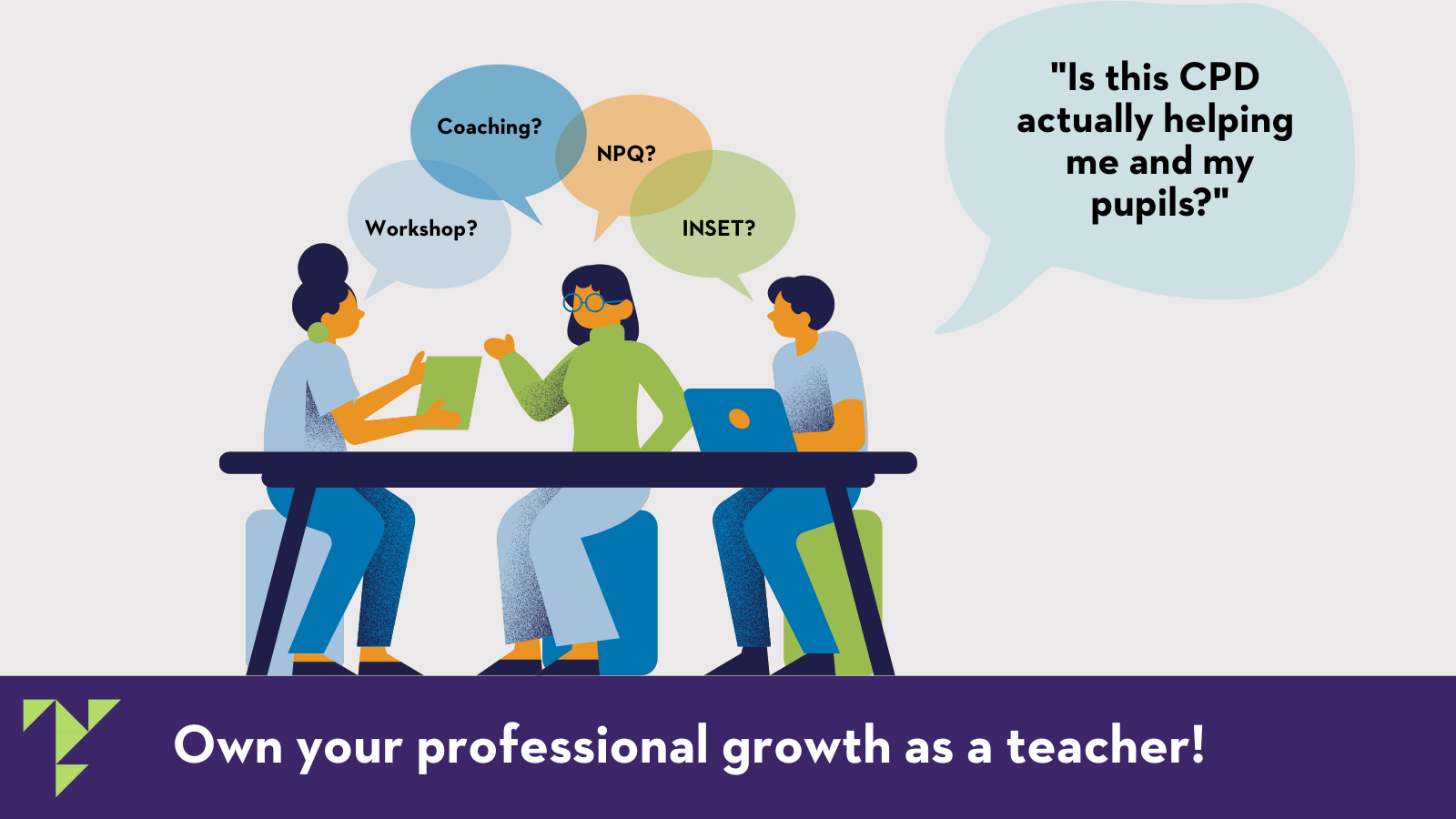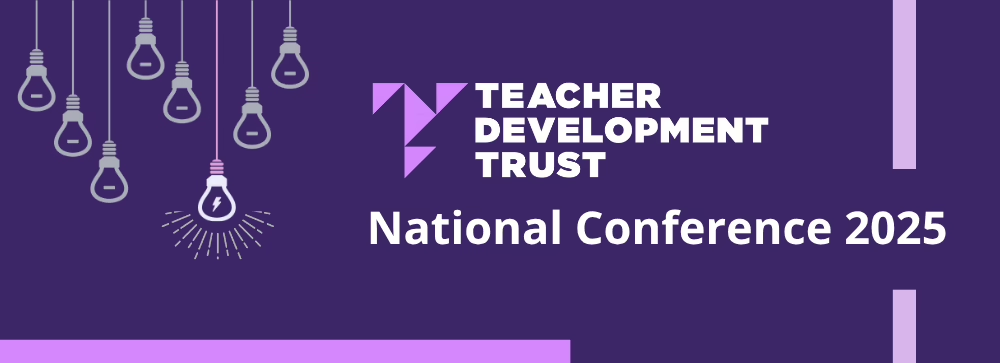Disappointing professional development 😔
We’ve all experienced that sense of rising dread as we walk into the room and realise that we are about to have professional development ‘done at us’ – whether it is on a mandatory INSET day, a well-intentioned twilight session, or even being sent on a course selected by somebody else without any real engagement.
Sound familiar?
Unsurprisingly the results of such professional development are almost always disappointing, and yet they account for far too large a proportion of precious developmental time.
Why does it happen?
The problem is a potential contradiction at the heart of how some understand professional development. On the one hand it is good that there is an ever stronger evidence base for what effective professional development can look like. That helps to ensure that time and money is spent on the right things, driven by evidence rather than whims and fads.
But it can lead to too tight a focus on the impact of a particular intervention, an obsession with pushing it through whilst ignoring another – and equally important – lesson from the wider evidence: if you want professional development to be effective, it needs to respond to the needs of the individual. Professional development with the best evidence in the world won’t work as intended if it isn’t right for the person doing it.
Why is it important to be actively involved in decisions around your own professional development?
Let’s look at two key pieces of research.
The first is work undertaken by NFER which looked at the links between teacher autonomy – that is what a teacher has direct control over – and job satisfaction. They looked at different variables and found that the most important area of autonomy was over professional development.
Teachers who have more agency when it comes to choosing the professional development they take are more satisfied in their jobs (and hence more likely to stay).
The second is our own Culture of Improvement paper which looks at the working conditions associated with positive learning environments. This is particularly important because the seminal work by Kraft and Papay (2014) shows that the right environment makes all the difference to teacher effectiveness.
The Culture of Improvement report shows collaboration – between teachers and school leaders – is an important part of creating that positive environment.
Together these pieces of research back up the idea that each individual teacher has to be part of deciding their own CPD journey. Not as a free for all – of course there needs to be conversations about priorities, link to the school improvement plan, and so forth – but nonetheless as an essential and respected part of the decision making process.
What questions could you ask yourself, and your line manager?
So how do you ensure that your ideas and needs are taken into account when it comes to the planning and prioritisation of your own CPD? We suggest three questions that you can ask yourself and your CPD lead:
- “Is this CPD actually right for me and my classroom?”
Make sure CPD fits your subject, your experience, and your real day-to-day practice.
- “Will I get time and support to really use this?”
Good CPD isn’t one and done, it should come with follow-up and space to try it out and reflect.
- “How will we know it’s made a difference?”
Great CPD should help you grow and help pupils learn – how will you know it’s had an impact?
You may also want to improve your knowledge of effective CPD approaches by looking at the free resources in our CPD Leadership Hub and encouraging your CPD lead to do the same. And you can take one of our expertly researched, developed, and affordable online modules covering the key elements of any CPD planning and delivery.
Most of all, make sure you give yourself the time and space to really think about what it is you want and need from your CPD – what is the development that will help you be the best teacher you can be, to get the best outcomes for your students.


